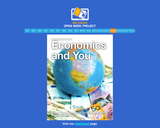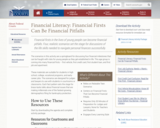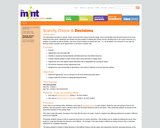
This lesson will introduce students to identifying wants and needs, what is a budget, and how do personal preferences affect/influcne speending habits.
- Subject:
- Social Studies
- Material Type:
- Activity/Lab
- Author:
- Nathan Rutko
- Date Added:
- 06/26/2020

This lesson will introduce students to identifying wants and needs, what is a budget, and how do personal preferences affect/influcne speending habits.

Understanding economics, what some people call "economic literacy," is becoming essential for citizens in our national and increasingly interconnected world economy. Increasingly, productive members of society must be able to identify, analyze, and evaluate the causes and consequences of individual economic decisions and public policy including issues raised by constraints imposed by scarcity, how economies and markets work, and the benefits and costs of economic interaction and interdependence. Such literacy includes analysis, reasoning, problem solving, and decision making that helps people function as consumers, producers, savers, investors, and responsible citizens. - From the Michigan Grade Level Content Expectations

How do circumstances influence individuals in making sound and purposeful financial decisions ensuring personal economic success in both a national and global economy? Why is it important to create a budget and set goals?

The scenarios in this activity are a springboard for discussing four financial milestones that can be fraught with risks for young people as they get established in life. This age group is coming into many financial firsts – first vehicle, first credit card, first student loan, and first job and apartment.

For this activity, students define the opportunity cost of a decision as the most valued discarded option and analyze trade-offs involved in making spending decisions.